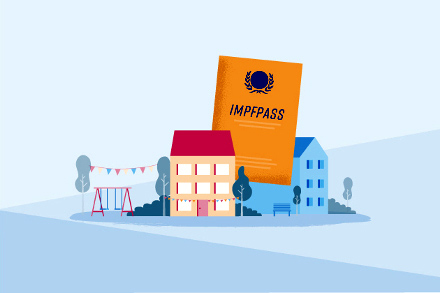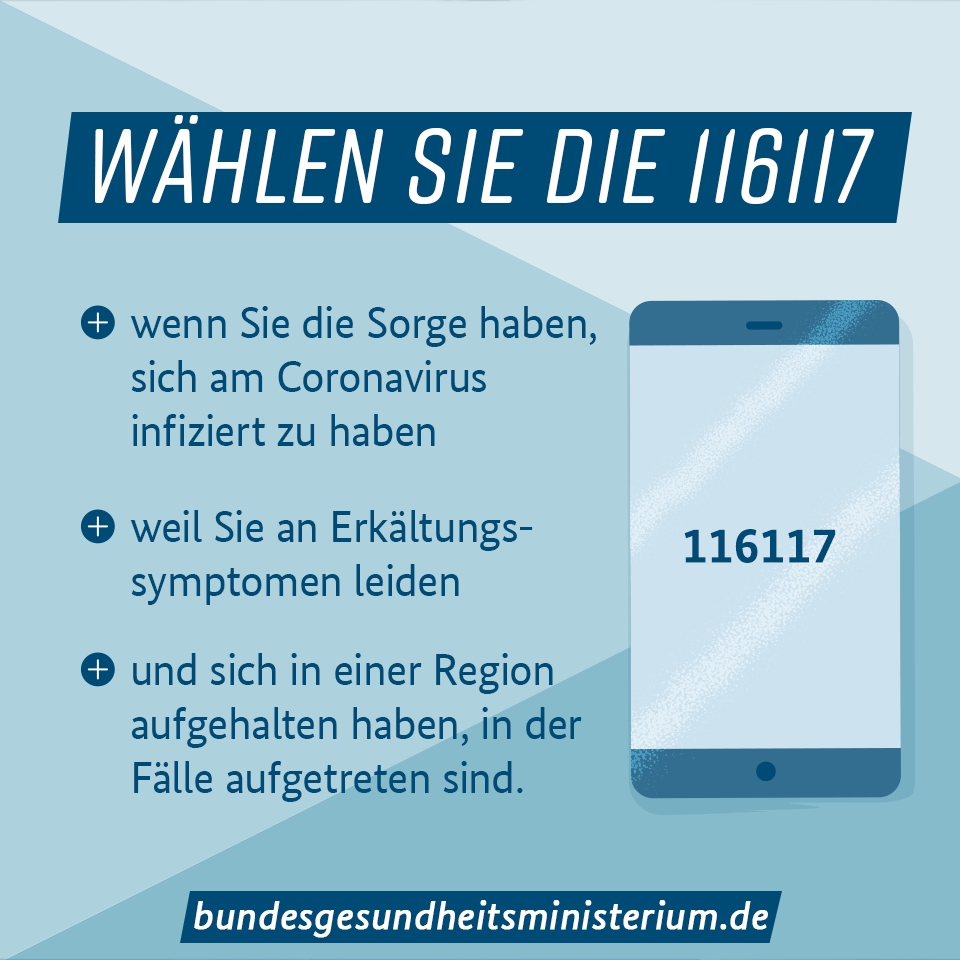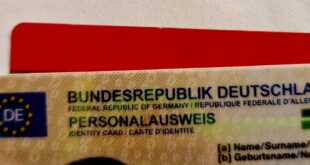March 2020 brings some changes for people living in Germany as a result of new or amended laws and regulations. Some of these changes include mandatory measles vaccination for children, introduction of repeat doctor’s prescriptions, the prohibition of speed camera warning app on your smartphone and easier immigration for skilled workers from non-EU countries, among others. Here is an overview of the important changes from 1 March 2020, by Sola Jolaoso
———-
Mandatory Measles Vaccination
The Measles Protection Act (Masernschutzgesetz) comes into force on 1 March. The law, which was passed on 14 November 2019, is intended to provide school, kindergarten and day care children with better protection against measles.
From the beginning of March, parents who want to have their child or ward admitted to a day care centre, kindergarten, school or other communal facilities must provide proof of measles vaccination.
People born after 1970 who work in communal or medical settings, such as nursery teachers, schoolteachers, day care workers and medical staff, must also be vaccinated against measles.

For children already attending a facility, proof of measles vaccination must be provided latest by 31 July 2021.
Parents face a fine of up to € 2,500 for violations. This fine can also be imposed, for example, on day care centres that admit children or tolerate personnel who have not been vaccinated.
Mandatory measles vaccination also applies to nursing staff, hospital and doctor’s office staff, as well as to all residents of asylum-seeker and refugee accommodations and those employed there. Asylum-seekers and refugees must have appropriate vaccination protection latest four weeks after being admitted to a communal accommodation.
Measles is a viral disease that is transmitted by droplet infection. It is a childhood disease, but can also occur in adolescents and adults, often with more severe courses. The disease is highly contagious and can cause pneumonia or brain inflammation and other complications and, in the worst case, can be fatal. The new vaccination requirement is intended to achieve a vaccination rate of at least 95 percent of the population. This is necessary to completely eliminate measles.
More information about measles vaccination at: www.masernschutz.de
Repeat medical prescriptions for the chronically ill
From 1 March, doctors can issue a so-called repeat prescription (Wiederholungsrezept) to chronically ill patients who regularly need medication.
With a repeat prescription, a prescribed medication can be obtained from the pharmacy up to three more times after the first visit. The prescription is valid for three months but can be extended by the doctor via a corresponding note.
Chronically ill are people who, on the one hand, have to see a doctor at least once every quarter because of their illness. Second, one of the following criteria must be met:
- There is care level (Pflegegrad or care degree of the person receiving treatment) 3, 4 or 5, or the degree of disability or the disablement from work (Minderung der Erwerbsfähigkeit) is 60 percent.
- Permanent medical care is necessary because, according to medical assessment, a life-threatening worsening of the disease, a reduction in life expectancy or a permanent impairment of the quality of life due to the health disorder caused by the disease being treated is to be expected.
Health insurance to pay for evidence of sexual violence
The costs of securing evidence of abuse and sexual violence are now covered by health insurance.
Victims of sexual violence or sexual abuse will no longer have to pay to secure evidence. As from 1 March, securing evidence after sexual violence is now covered by health insurance. Among other things, the analysis of sperm or tests to detect knockout drops (K.O.-Tropfen) in victims are covered by health insurance.
The aim of the new regulation is to improve the early preservation of evidence in the event of suspected rape or sexual abuse. For example, people who have been victims of rape can confidentially go to a doctor, hospital or other specialised facility to be examined before they contact the police. Doctors and hospitals can bill the health insurance companies for these services without the person examined being identified by the health insurance company.
———–
More on the three new health regulations on the website of the Federal Ministry of Health here
Concerned about Coronavirus?

If you are concerned that you have contracted the coronavirus, contact your family doctor or call 116117 – the number of the emergency medical service. Further information at: www.bundesgesundheitsministerium.de/coronavirus
———
Skills Immigration Act eases way to Germany for non-EU workers
The Skilled Labour Immigration Act (Fachkräfteeinwanderungsgesetz) comes into force on 1 March. It is intended to make it easier for skilled workers from non-EU countries to access the German labour market in order to mitigate the shortage of skilled workers in the country.
According to the law, third-country nationals (non-EU nationals) are considered to be skilled workers if they have a German vocational training qualification or a foreign professional qualification equivalent to a German vocational training qualification or have a German university degree, a recognised foreign university degree or a foreign university degree comparable to a German university degree.
At the same time, companies no longer have to carry out a priority check (Vorrangprüfung) when hiring a foreign worker from non-EU countries. Previously, this test had to be made to determine whether an applicant from Germany or the EU was available before a specialist from a non-EU country could be hired.
There are also no longer restrictions of hiring non-EU professionals to so-called shortage professions, that is, labour market sectors suffering from shortages.
Entry visas to Germany for professionals from a non-EU country becomes easier if they can demonstrate German language skills and fulfil other conditions.
Moreover, a non-EU job applicant who can speak German and is sufficiently qualified can receive a visa for up to six months to search for a job in the country.
The federal government estimates that the new law will bring an additional 25,000 specialists to Germany each year.
More information on the new law here
———
Local elections in Bavaria
Local elections at which municipal parliaments are elected will be held in Bavaria on 15 March. The municipal parliaments are municipal councils (Gemeinderäte), city councils (Stadträte) and district councils (Kreistage).
In addition, elections will hold for the mayors in 24 independent cities such as Munich and Nuremberg, and the district administrator (Landräte) in 64 districts.
In contrast to state or federal elections, EU citizens are also entitled to vote at local elections.
———
Tax returns: Relocation flat rate increased
In the event of relocation from one town to the other for the purposes of taking up an employment or changing workplace, taxpayers can deduct a higher flat rate as income-related expenses (Werbungskosten) in their income tax returns or are entitled to be reimbursed for the incurred expenses by their employer from the beginning of March.
As from 1 March 2020, the flat rate for married and life partners will rise to 1,639 euros, the flat rate for singles to 820 euros. The increase for children and other relatives is then 361 euros.
While transport and travel costs, double rental payments and agency fees can be deducted directed in tax returns, all other relocation expenses can be claimed within the flat rates.
———
Speed camera warning app prohibited
Speed camera warning apps (Blitzer-Warn-App) on smartphones or navigation devices can no longer be used while driving. The prohibition of these apps is now expressly laid down in the road traffic regulations (Straßenverkehrsordnung).
Running into a speed trap is a common reason to end up getting a speeding ticket. One of the best ways to avoid them is by using a radar speed trap alert app on your phone. That is now forbidden in Germany.
Loophole of the new regulation: Police officers are not allowed to simply search the smartphone – nor is it forbidden to use such warning apps as a passenger in the vehicle.
© The African Courier
READ MORE Changes in laws and regulations in Germany from February 2020
 THE AFRICAN COURIER. Reporting Africa and its Diaspora! The African Courier is an international magazine published in Germany to report on Africa and the Diaspora African experience. The first issue of the bimonthly magazine appeared on the newsstands on 15 February 1998. The African Courier is a communication forum for European-African political, economic and cultural exchanges, and a voice for Africa in Europe.
THE AFRICAN COURIER. Reporting Africa and its Diaspora! The African Courier is an international magazine published in Germany to report on Africa and the Diaspora African experience. The first issue of the bimonthly magazine appeared on the newsstands on 15 February 1998. The African Courier is a communication forum for European-African political, economic and cultural exchanges, and a voice for Africa in Europe.



































